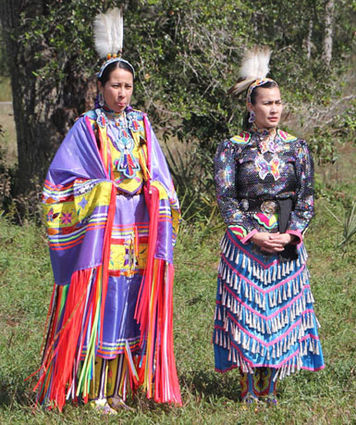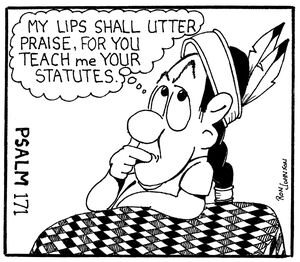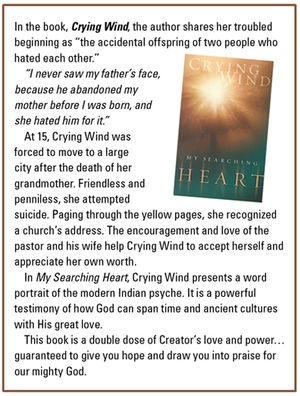Controversies continue over Native American costumes
Last updated 11/16/2017 at 10:31am

pixabay.com/rdwittle
Indigenous clothing often has traditional and personal nuances that are not respected by costume wearers.
With racial issues taking more attention on the North American stage the past couple of years, controversy was rife in 2017 over the appropriateness, or inappropriateness, of Halloween and party costumes depicting Native Americans.
Halloween has morphed into a day that "celebrates creative self-expression," said author Alla E. Dastagir in USA Today. And for many, especially people raised on Disney depictions of indigenous people, dressing as Pocahontas or other strong indigenous characters, is considered an act of respect and admiration. If America is built on multiculturalism, many feel nothing is wrong with borrowing from, or in a sense, celebrating each others' heritage.
However, people used to being criticized for their skin color or culture tend to feel that even strong stereotypes are offensive. Especially when the person borrowing from the culture is privileged, while the person who is being borrowed from is oppressed-for example, a white person wearing dreadlocks on Halloween when a black man who regularly wears dreadlocks cannot get a job.
Blogger Terra Trevor wrote of seeing a father and daughter dressed as Native Americans, "This father was most likely unaware that it is disrespectful to dress his daughter and himself as Native American. I could shrug it off as cultural borrowing and overlook cultural appropriation, after all, he means well. But I can't. As Native American people we are a culture-not a costume. I understand that wearing a culture as costume is not intended to hurt most of the time. However, the fact of the matter is that it does."

Trevor also points out that unlike generic costuming, the Native American clothing and regalia being mimicked by trick-or-treaters or partiers is often rife with meaning and cultural identity and tradition. Beadwork may contain personal motifs reflecting a tribe. In imitations, the very essence of what makes the clothing timeless is lost and disrespected.
"I also can't shrug it off because after Halloween is over this problem will not go away. Native-alike regalia has become popular style-wear in the mainstream in the US," Trevor writes. "This fetish for dressing in a manner to look like an American Indian has moved beyond Halloween-and has become a year-round clothing trend for adults who are dressing up to resemble a race and culture of people they do not belong to. Some wear it out of naiveté and others in a blatant disregard, disrespect and irreverence. Our Native American regalia is a tradition for our Native people, and the wearing of it is a distinctly indigenous activity."

Of special concern are the "sexy Indian girl" costumes. In a culture where one in three Native women are sexually assaulted, more than twice the national average, promoting the stereotypes of indigenous women as sexual objects instead of people is not a funny matter.
One Arizona retailer, Yandy, that brands itself as marketing sexy costumes offers 44 Native American outfits, as well as accessories. Last year the company cleared $150,000 on their Native American costumes-the reason they're ignoring public outcry.
Jeff Watton, Yandy's CFO, said the company won't take the costumes off their website until it "gets to the point where there is, I guess, significant demonstrations or it gets to a point of contentiousness that maybe is along the lines of the Black Lives Matter movement, where you have major figures in the sports world going to a war of words with the president, then it's become too hot of an issue."

Yandy did shoot down the idea of a sexy Black Lives Matter costume, Watton admitted.
"At the heart of any cultural appropriation issue is an issue of power and who has the power over the story being told," says Jaclyn Roessel, the director of the artistic and cultural consulting firm Grownup Navajo. "By embracing offensive stereotypes and images, we're erasing the narrative of an entire race and group of people . . . This company and others like it aren't treating native people as human people, and that's a very big problem."
Susan Scafidi, author of Who Owns Culture: Appropriation and Authenticity in American Law sees richness in experiencing others' cultures. "It would be terrible if we had to all remain in our own cultural lanes and only eat those exact same cuisines that our parents and grandparents and so forth ate, and never be able to travel the world by going from one restaurant to another or to experience other languages and movies and novels, and yes, modes of dress," she says. "But it comes down to respect and context. I think that if we're from cultures that have not been historically-especially recently-attacked, oppressed, discriminated against, it might be a little harder to understand. But I think part of Halloween is being creative, and creatively imagining yourself in another form, as another character. So I think we just need the imagining to start early and imagine how someone else would feel if you dressed [like them].
"If we lived in a perfect world, we could all dress up as one another without giving offense. But there are historical realities and ongoing social issues and we just have to respect that that's part of where America is right now, and maybe pull back from that kind of masquerade."

